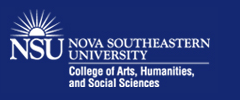Abstract
Conflict-free Conflict Resolution (CFCR) is an emerging theory and practice of conflict resolution. Building upon traditions of innovation within the field of dispute resolution, as well as insights from a variety of disciplines including conflict studies, peace studies and developmental psychology, CFCR aims to be a unity-centered practice. Both the method and outcomes of CFCR are attempts to reflect the possibilities of helping to create conditions of unity between individuals and communities. The purpose of this article is primarily descriptive, aiming to give an initial overview of CFCR as a practice. This description is rooted in the initial applications of CFCR in a number of contexts. In this article, the theoretical underpinnings of the CFCR model are summarized, CFCR’s connections with the contemporary conflict resolution scholarship are explored, and the three stages of CFCR are outlined.
Keywords
alternative dispute resolution, conflict-free conflict resolution (CFCR), conflict studies, dispute resolution, peace studies
Publication Date
11-2004
DOI
10.46743/1082-7307/2004.1051
Recommended Citation
Danesh, Roshan and Danesh, Hossain
(2004)
"Conflict-Free Conflict Resolution Process and Method,"
Peace and Conflict Studies: Vol. 11:
No.
2, Article 4.
DOI: 10.46743/1082-7307/2004.1051
Available at:
https://nsuworks.nova.edu/pcs/vol11/iss2/4



